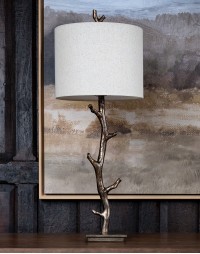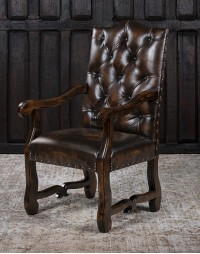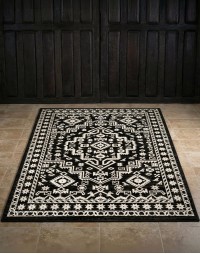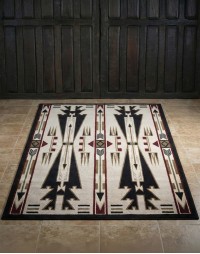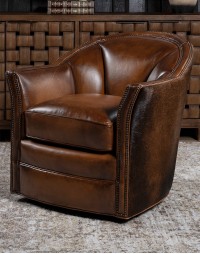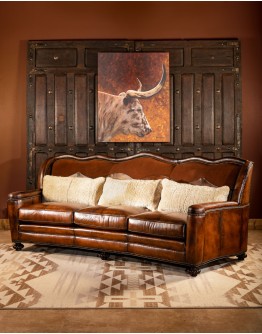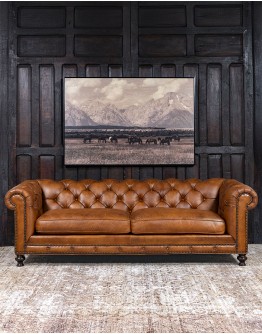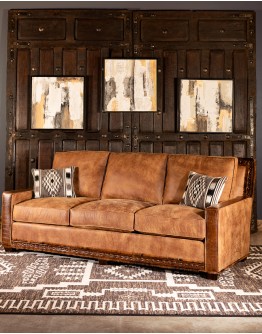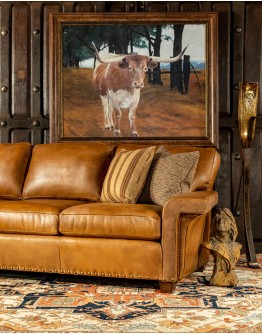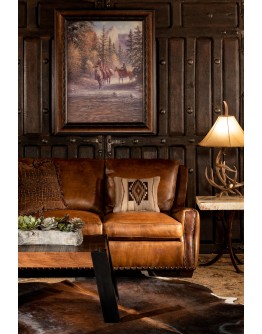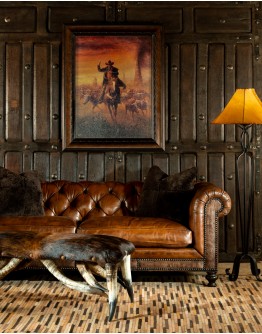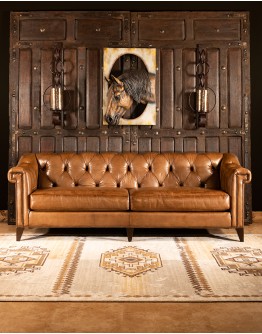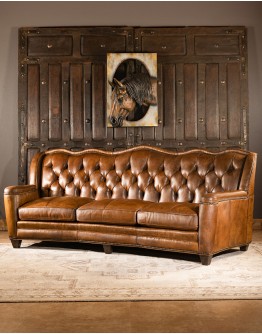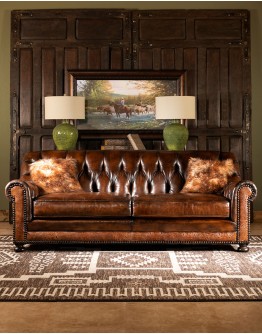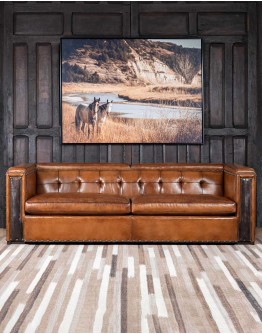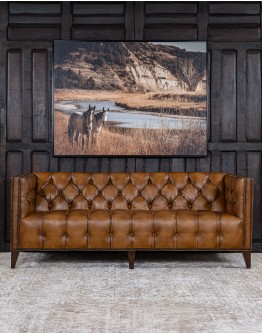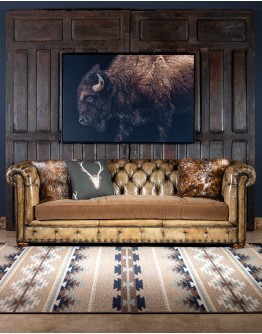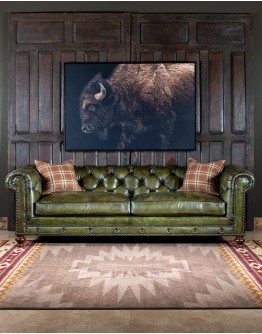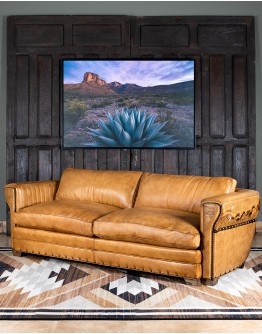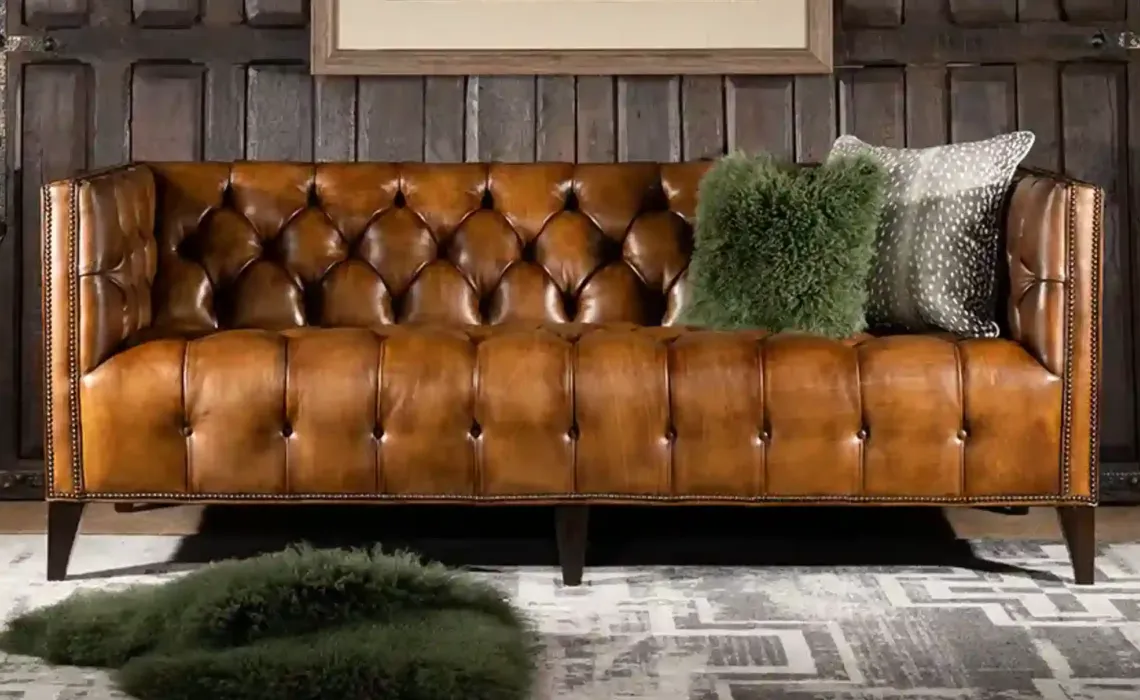
Comprehensive Guide to Leather Sofa Durability
Leather couches are a popular choice for homeowners due to their luxurious appearance, comfort, and durability. But one question often comes up when considering investing in one:
How long should a leather couch last?
In this article, we'll explore the factors that determine the lifespan of a leather couch, how to maintain it for longevity, and what to expect from different types of leather.
A. Factors That Influence the Lifespan of a Leather Couch
A1. Type of Leather
The type of leather used in the couch is the most significant factor in determining its durability. There are three main types of leather used in furniture:
Full-Grain Leather: This is the highest quality leather and can last decades with proper care. It retains the natural grain, making it durable, resistant to wear, and gaining a beautiful patina over time.
Top-Grain Leather: Slightly less durable than full-grain leather, but still long-lasting. It is sanded down for a smoother surface, which reduces its durability slightly but makes it softer to touch.
Bonded or Faux Leather: Made from leftover leather scraps and synthetic materials, these types of leather are much less durable and may last 3 to 5 years before showing significant wear.
A2. Usage Frequency
How often you use your couch will also affect its lifespan. If it's in a family room with constant traffic, it may wear out faster compared to a leather couch in a formal living room that is used sparingly.
A3. Environmental Factors
Leather is sensitive to environmental factors such as sunlight and humidity. Direct exposure to sunlight can cause leather to fade and crack over time, while high humidity can lead to mold or mildew. Keeping your couch in a controlled environment can extend its life.
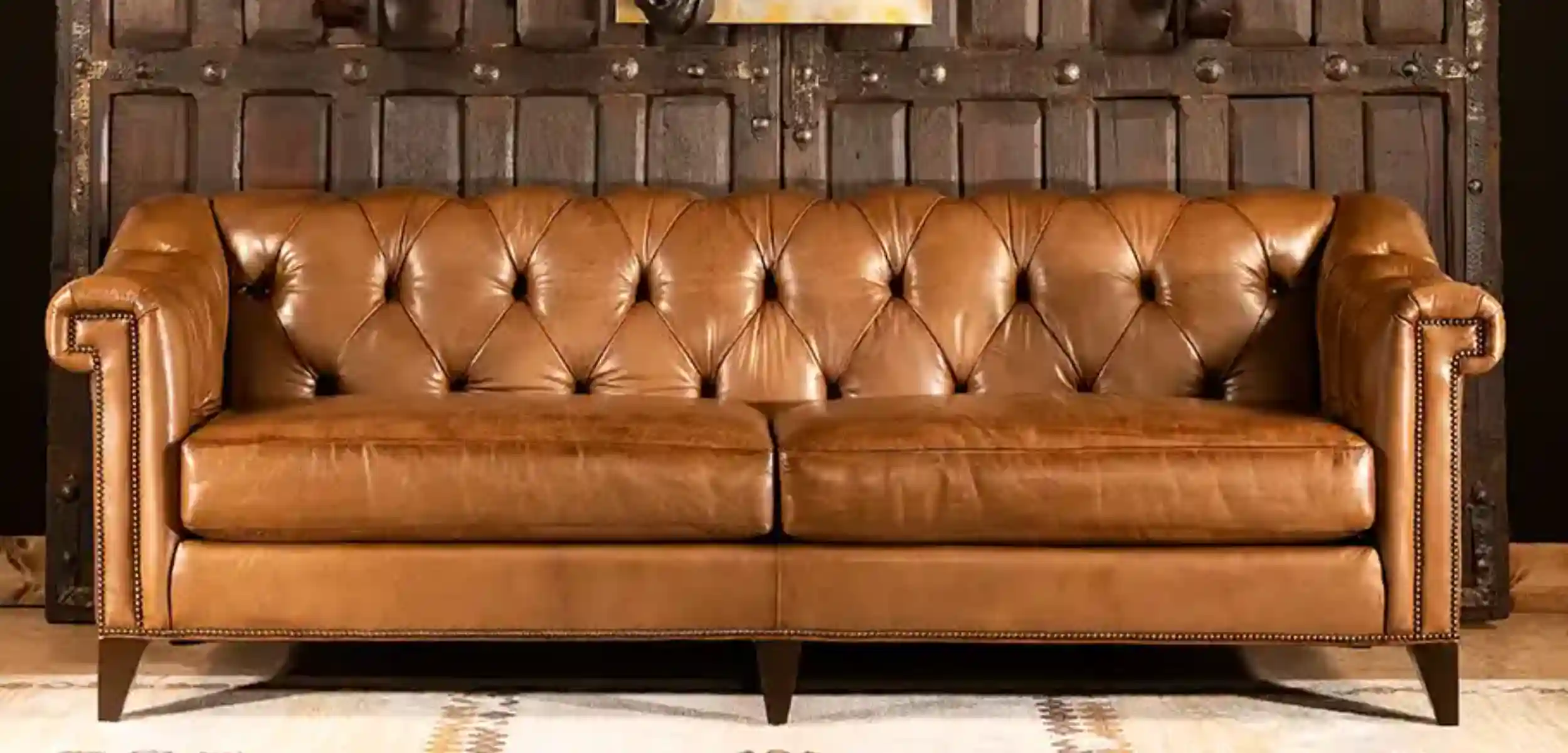
B. Average Lifespan of a Leather Couch
A high-quality leather couch made from full-grain or top-grain leather can last anywhere from 15 to 25 years or more. In contrast, couches made from bonded or faux leather will have a much shorter lifespan, typically ranging from 3 to 7 years before they start to show signs of wear such as cracking, peeling, or fading.
C. How to Extend the Life of Your Leather Couch
C1. Regular Cleaning
One of the easiest ways to extend the life of your leather couch is by cleaning it regularly. Use a soft, dry cloth to dust the surface weekly, and clean it more thoroughly with a leather conditioner every 6-12 months. This helps the leather retain its moisture and prevents cracking.
C2. Protect from Sunlight and Heat
Direct sunlight and heat can cause leather to dry out and fade. Place your couch away from windows or use curtains to protect it from UV rays. Avoid placing it near heat sources like radiators or fireplaces as well.
C3. Use Leather Conditioners
Leather conditioners are designed to keep leather soft, supple, and resistant to cracks. Applying a high-quality leather conditioner once or twice a year can help extend the lifespan of your couch.
C4. Handle with Care
Avoid using harsh cleaning agents or scrubbing the surface too hard, as this can damage the leather. Pets' claws, sharp objects, or even heavy usage can cause tears or scratches, so handle with care.
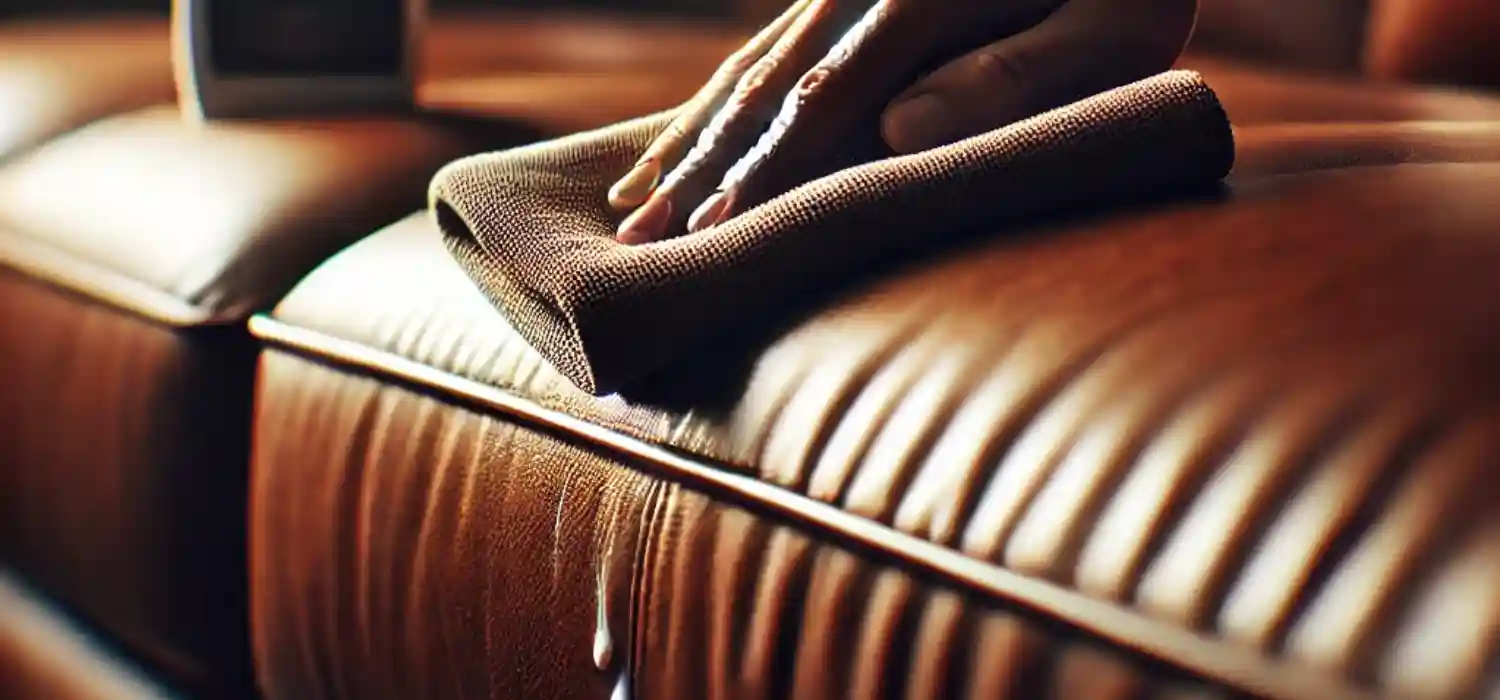
D. Signs It's Time to Replace Your Leather Couch
Even with the best care, your leather couch will eventually show signs of wear. Here are some indicators that it may be time to replace your couch:
Deep Cracks or Tears: Small cracks are fixable, but deep cracks or tears that penetrate through the leather are usually irreversible.
Sagging Cushions: When the structure or support of the couch starts to give out, even high-quality leather can’t compensate for comfort.
Peeling Leather: If you have a bonded or faux leather couch, peeling is often a sign that the material is breaking down, and repairs are not always possible.
Conclusion
The longevity of a leather couch depends largely on the type of leather, frequency of use, and the care it receives. A high-quality leather couch can last for decades, making it a worthwhile investment. That is why is important to choose a good leather couch for your home. By following proper maintenance tips and protecting your leather couch from environmental damage, you can enjoy its beauty and comfort for many years to come.
Frequently Asked Questions (FAQs)
1. Can a leather couch last 20 years?
Yes, a high-quality leather couch made from full-grain or top-grain leather can easily last 20 years or more with proper care.
2. How do I know if my leather couch is high quality?
Look for terms like full-grain or top-grain leather, which indicate high quality. Bonded leather or faux leather is less durable. Additionally, high-quality leather couches often feel softer, have a natural grain, and develop a patina over time.
3. Does real leather crack or peel?
Real leather, especially full-grain and top-grain, does not peel but may crack over time if it becomes too dry. Bonded leather or faux leather, on the other hand, tends to peel over time.
4. How often should I condition my leather couch?
You should condition your leather couch every 6-12 months to keep it soft, supple, and free of cracks.
5. Is it worth reupholstering a leather couch?
If your leather couch is structurally sound but the leather is showing wear, reupholstering can be a cost-effective way to extend its life. However, if the frame or cushions are damaged, it may be better to invest in a new couch.
6. Can pet claws damage a leather couch?
Yes, pet claws can easily scratch or puncture leather. To protect your leather couch, you can use slipcovers, keep pets’ nails trimmed, and encourage them to use designated scratching posts or furniture. Some types of leather, such as top-grain and full-grain, are more resistant to damage, but prevention is always the best strategy.
7. Does the color of a leather couch affect its durability?
While the color itself doesn't directly affect durability, darker shades like brown, black, or cognac tend to show wear and tear less visibly compared to lighter colors. Lighter-colored leather couches may need more frequent cleaning and maintenance to keep them looking fresh, but with proper care, all leather colors can last a long time.
8. What are the best ways to prevent a leather couch from cracking?
Cracking is one of the most common issues with leather couches over time. To prevent it, regularly condition the leather using a high-quality leather conditioner, keep the couch away from direct sunlight and heat sources, and clean it with a soft cloth to remove dust and debris. Keeping the leather moisturized is key to avoiding cracks.

